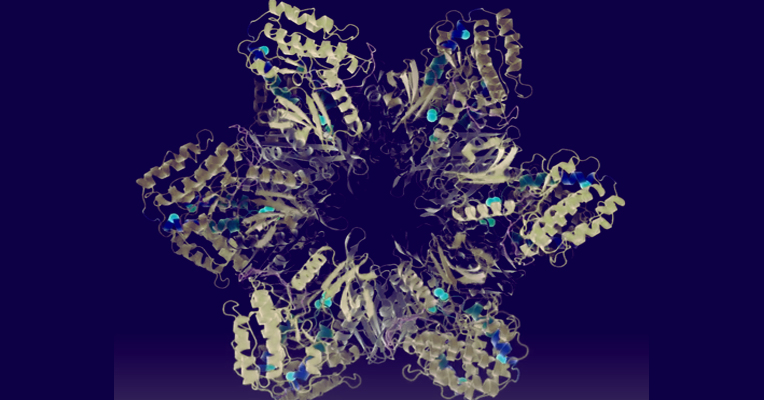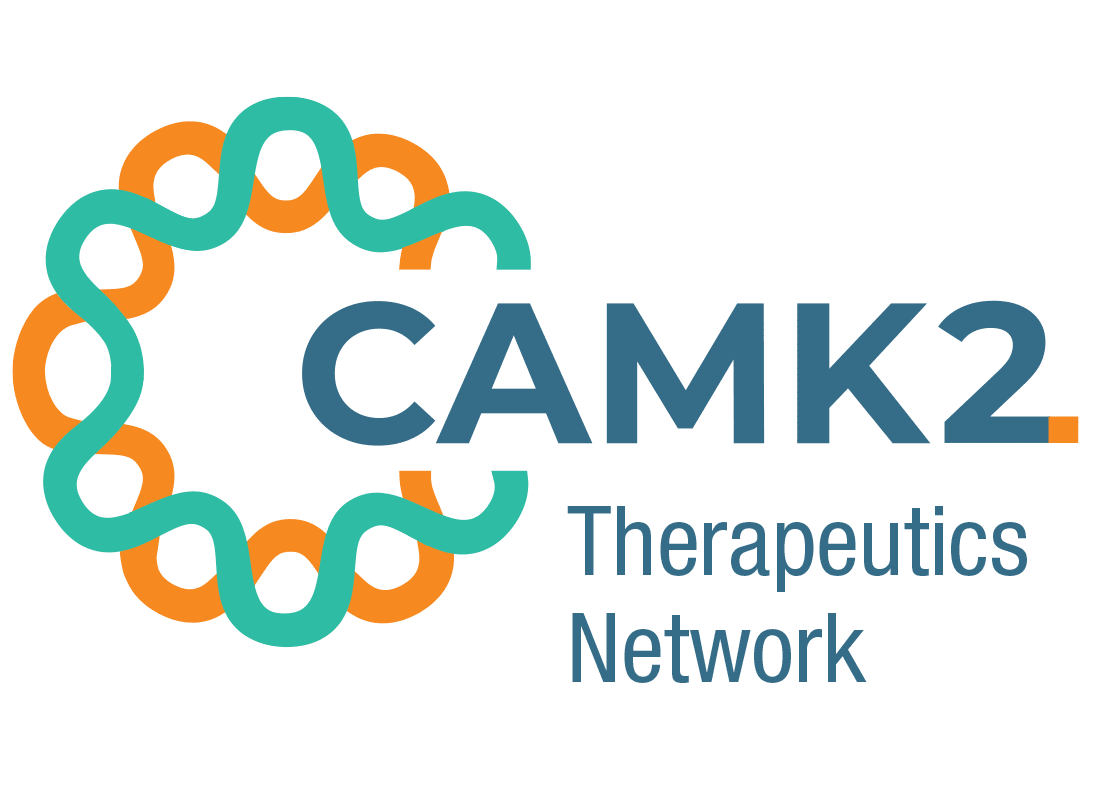
The CAMK2 molecule. Courtesy Stratton Lab
RESEARCH UPDATE
February 2024
Dr. Bonnie Dwyer, Executive Director, CAMK2 Therapeutics Network Executive Director
CAMKII, the protein encoded by the CAMK2 gene, is a well-studied molecule best known for its role in learning and memory. Mutations in CAMK2 genes were linked to neurodevelopmental disorders only recently, in 2017.
At the mild end of the spectrum, patients have variable intellectual disability but suffer from intermittent episodes of inconsolable distress and pain. At the severe end of the spectrum, patients have profound intellectual disability, are unable to walk or talk, and have near-constant agitated delirium. Some have seizures.
By listening to families, CAMK2 Therapeutics Network has learned that they can acclimate to their affected family members’ developmental delay but not to the episodic inconsolable distress or seizures. Treatment of these episodes and seizures, therefore, is our first goal.
Our short-term goal is to use existing medications to target symptoms. Long term, we hope to develop specific, novel therapies with optimal effectiveness and minimal side effects.
Research priorities underway include:
- Expanding the CAMK2 ENCORE patient registry, essential for gaining a deeper understanding of symptoms. This first step will become the basis for the clinical expertise necessary for trials of existing medications, which, in turn, can measure the effectiveness of symptom interventions in clinical studies.
- Measuring the functional consequences of each mutation, needed to develop patient specific treatments.
- Developing in vitro (induced pluripotent stem cells, iPSC) and in vivo (mouse) disease models, needed to test candidate medications and future genetic therapies for effectiveness and side effects.
In January 2024, the CAMK2 ENCORE team at Erasmus Medical Center in The Netherlands received a large grant from The Brain Foundation to study the potential for ASO (antisense oligonucleotide) gene therapy in selected patients. This research is already under way.

